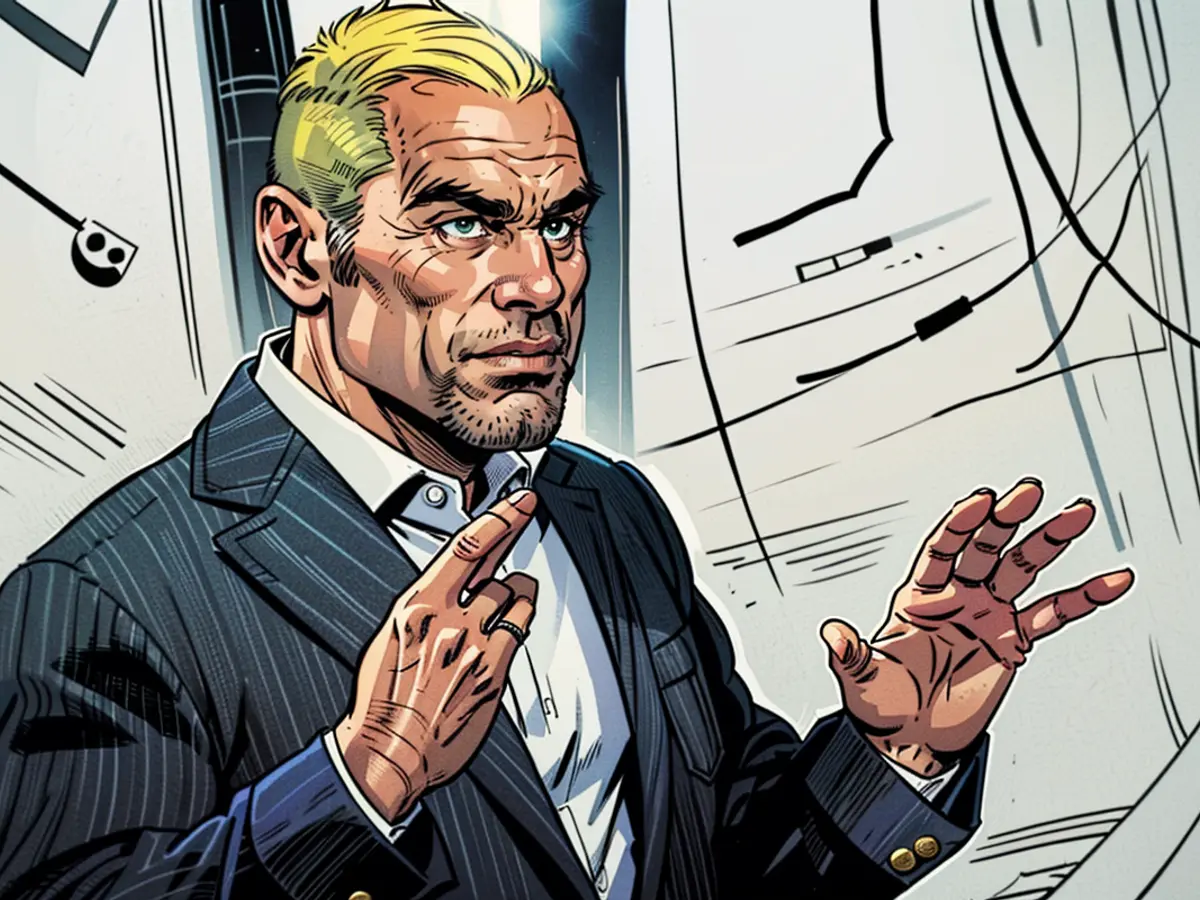Scholz highlights the accomplishments of the estranged Ampel coalition.
It's clear to hear the discontentment in Chancellor Olaf Scholz's voice when discussing his coalition's work over the past few months. He repeatedly uses the word "difficult" to describe the formation of the government with three parties, their current ruling, and the budget. The frequent disagreements have left SPD, Greens, and FDP feeling distanced from each other.
Disenchantment has been lingering for a while. Voters are generally unsatisfied with the federal government's performance, according to polls, and many coalition members question its continuation 13 months before the next federal election. Trust has reached its limit. Green leader Omid Nouripour was one of the most open about his feelings, labeling the coalition as "a transition coalition after the Merkel era" in a summer interview.
Scholz celebrates the traffic light coalition's successes
The label of a "transition coalition" is not one Scholz takes lightly. "Every government is the government before the next," he says matter-of-factly, implying that the coalition could continue if it so chooses. The traffic light coalition has accomplished several key tasks: accelerating modernization, managing the energy crisis, supporting Ukraine, and enhancing the Bundeswehr's defense abilities. However, Scholz admits that achieving these goals came with challenges, and the smokescreen from the negotiations might be obscuring the coalition's true achievements.
The strain between coalition partners seems to be evident in the constant criticism. Vice-Chancellor Robert Habeck expressed his frustration with the budget, stating that finding an extra three billion euros in a budget of over 450 billion shouldn't be that difficult. The SPD is eager for debt brake reform in the next legislative period without the FDP, while the FDP makes decisions that seemingly provoke its coalition partners.
Coalition partners clash frequently
The tension between the traffic light partners is palpable. For example, Robert Habeck has openly expressed his frustration with the budget, while the SPD hopes for a reform of the debt brake in the next legislative period without the FDP. The FDP, in turn, takes decisions that the SPD and Greens find provocative. The latest instance was the "Roadmap for the Future - A Policy for the Car," which aims to bring more cars into city centers with free parking.
Manfred Güllner, a political scientist from Forsa, told Bild, "Then the coalition can't continue like this. They should honestly end this struggle." Despite the challenges, Scholz isn't thinking about giving up. He acknowledges that governing is difficult but insists, "Nevertheless, we must make the effort here," as results matter.
Germany must adapt to the notion that future governments will likely be formed by parties who didn't initially plan to collaborate, according to Scholz. The strong electoral results of the AfD are, in fact, pushing parties to cooperate across old boundaries. This challenges won't get any easier, Scholz warns.
Despite the strife, Scholz isn't considering throwing in the towel. He acknowledges the difficulty of governing, but insists, "Nevertheless, we must make the effort here." Faeser, the Interior Minister, agrees, stating, "Our task is to work together for the citizens, to bring out the best as a coalition, and to work well together in the remaining one and a half years." However, Lauterbach, the Health Minister, disputes Nouripour's assessment, maintaining that the traffic light coalition is active and making progress in healthcare reforms.
Within the SPD, Nouripour's sharp statements are seen as an early election campaign move by some. According to Juso chief Philipp Türmer, Nouripour's goal is to work with the CDU in the next government coalition. The traffic light coalition must hold together, as anything else would be irresponsible, but a continuation of the traffic light coalition is unlikely, even by Türmer's own admission.
I'm not going to sugarcoat it: The situation within the traffic light coalition is far from ideal.Despite the challenges, Chancellor Scholz refuses to give up, emphasizing the need to make efforts and deliver results for the citizens.








